Roskilde 2025, Denmark’s flagship music and arts festival, returns this summer with eight days of music and art across multiple genres. Running from 28th June to 5th July, there are also four pre-festival days – almost as important as the main festival for local artists, new acts and some of the more avant-garde performers.
Roskilde is about 30 minutes by train from Copenhagen. The event has grown from a local gathering in 1971 into one of Europe’s most significant cultural events. Its music programme spans rock, hip hop, electronic, experimental, jazz, metal, folk, and world music. This year there are 185 acts from 45 countries. The line-up ranges from Olivia Rodrigo and Stormzy to Annahstasia and modular-jazz innovator Nala Sinephro.
But Roskilde isn’t just about the music. Visitors can explore art installations, workshops, talks, sustainable food zones (food is a big thing at Roskilde), and a camping experience that’s a small city in its own right. It’s a powerful, immersive experience. And like any such event, it comes with practical costs. So, while the festival itself has been cashless since 2017, the Danish Krone (DKK) is still something you’ll want in your pocket.
What to expect – and what to spend
Roskilde Festival takes place at Dyrskuepladsen, just outside the city of Roskilde. The festival site is vast, with defined areas for camping, concerts, food courts, market stalls, and exhibitions. Within the official festival zone, cards and mobile payments are the norm – including for drinks, meals, and merchandise. However, many attendees explore beyond the gates during the week.
Roskilde itself is an attractive town worth visiting in its own right. Highlights include the UNESCO-listed Roskilde Cathedral and the renowned Viking Ship Museum, where you can see five reconstructed vessels from the 11th century and learn about Denmark’s seafaring past.
Here are some sample local costs outside the festival grounds:
- Train from Copenhagen to Roskilde (single): from DKK 84 (£9.50 approx.)
- Train from Copenhagen to Roskilde (return): from DKK 114 (£13.0 approx.)
- Street food (e.g. Danish smørrebrød): from DKK 85 (£10.0 approx.)
- Coffee (latte or cappuccino): from DKK 45 (£5.10 approx.)
- 500ml beer at a bar: from DKK 50–60 (£5.70–6.80 approx.)
- Taxi within Roskilde: from DKK 100–180 depending on distance and time of day (£11.50–21). There’s a DKK 40 standing charge (£4.50 approx.) and km charge of DKK 10 (£1.15 approx.).
While cards are accepted at many cafés and bars, some smaller vendors, independent shops, and taxis – especially at night – may prefer or even require cash. Tipping isn’t expected in Denmark, but rounding up the bill is considered polite, and again, easier to do with coins or small notes.
Why carry Krone when the festival is cashless?
There’s a common misconception that a cashless festival means a cashless holiday. But seasoned festival-goers know the value of keeping a modest amount of local currency.
Cash is useful in several situations:
- At independent market stalls in Roskilde town, especially during the festival week
- For taxis or late-night travel when mobile signals may falter
- When splitting costs in a group or buying second-hand goods from other campers
- As a backup in case your card is blocked, lost or rejected
Equally important, using Krone avoids the hidden foreign transaction fees that can come with paying by card. For frequent small purchases those can mount up, so it’s smart to carry cash too.
Getting Krone in advance – the smart way
One of the simplest ways to avoid hassle abroad is to arrange your currency before you travel. Using a service like Money4Travel allows you to:
- Order Danish Krone online at competitive rates
- Collect from a local partner bureau or travel agent in your area
- Avoid last-minute airport markups
- Access a buy-back guarantee if you don’t spend it all
- Earn loyalty points (“Pips”) on each transaction
It’s a flexible solution designed with travellers in mind. And for festivals like Roskilde 2025 – where official venues are digital-only, but spontaneous moments happen everywhere – having physical currency on hand gives you choice, control, and peace of mind.
Practical festival info: tickets, facilities, access
- Tickets: Full 8-day passes are DKK 2550 (£290 approx.)
- Camping: Basic camping is included. Upgrades (e.g. quiet zones or sustainable “Clean Out Loud” areas) cost more, but are currently sold out.
- Food and drink: Over 100 food stalls, with a strong emphasis on sustainability and local produce. Alcohol is sold on-site; reusable cup systems are in place.
- Accessibility: Roskilde offers an impressive range of support for people with disabilities, including free companion tickets, viewing platforms, accessible camping, and adapted toilets. There are no additional charges for these services.
Final thought: think Krone, not just card
Roskilde 2025 is one of the most exciting and forward-thinking festivals in Europe – and while the experience is proudly digital, the practicalities of travel in Denmark still include plenty of cash-based scenarios. For UK travellers, bringing a small amount of Krone is a low-cost way to stay flexible, spontaneous, and better prepared.
And if you want to skip the queues and confusing ATM fees, ordering online through a trusted provider like Money4Travel could save you time and money – before you even step off the plane.
By Declan Morton, writer and editor at Money4Travel – the online service for foreign currency sales in the UK. More about the author.
For Reference: Roskilde festival ; Roskilde Line-up ; Roskilde Practical information ; Festival accessibility and inclusion ; Visit Copenhagen ; Numbeo .



